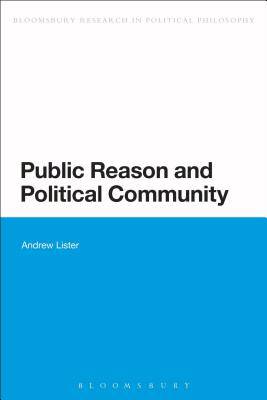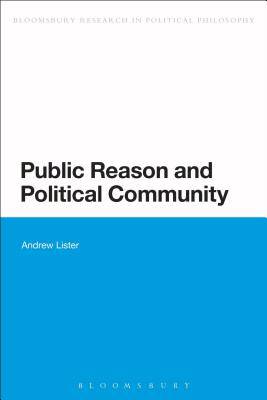
- Afhalen na 1 uur in een winkel met voorraad
- Gratis thuislevering in België vanaf € 30
- Ruim aanbod met 7 miljoen producten
- Afhalen na 1 uur in een winkel met voorraad
- Gratis thuislevering in België vanaf € 30
- Ruim aanbod met 7 miljoen producten
Zoeken
Omschrijving
Public Reason and Political Community defends the liberal ideal of public reason against its critics, but as a form of moral compromise for the sake of civic friendship rather than as a consequence of respect for persons as moral agents.
At the heart of the principle of public justification is an idealized unanimity requirement, which can be framed in at least two different ways. Is it our reasons for political decisions that have to be unanimously acceptable to qualified points of view, otherwise we exclude them from deliberation, or is it coercive state action that must be unanimously acceptable, otherwise we default to not having a common rule or policy, on the issue at hand? Andrew Lister explores the 'anti-perfectionist dilemma' that results from this ambiguity. He defends the reasons model on grounds of the value of political community, and applies it to recent debates about marriage.Specificaties
Betrokkenen
- Auteur(s):
- Uitgeverij:
Inhoud
- Aantal bladzijden:
- 248
- Taal:
- Engels
- Reeks:
Eigenschappen
- Productcode (EAN):
- 9781780936574
- Verschijningsdatum:
- 19/12/2013
- Uitvoering:
- Hardcover
- Formaat:
- Genaaid
- Afmetingen:
- 152 mm x 236 mm
- Gewicht:
- 521 g

Alleen bij Standaard Boekhandel
+ 644 punten op je klantenkaart van Standaard Boekhandel
Beoordelingen
We publiceren alleen reviews die voldoen aan de voorwaarden voor reviews. Bekijk onze voorwaarden voor reviews.







